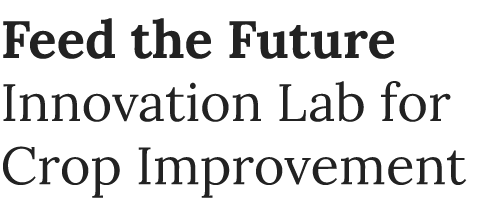Become part of the inaugural cohort of TW Turner Fellows and prepare for a career that promotes inclusive and sustainable development.
We are not currently accepting applications. Selected 2022-23 Fellows have been notified of their acceptance.
The Feed the Future Innovation Lab for Crop Improvement (ILCI) Thomas Wyatt Turner Fellowship will support graduate students to become next-generation leaders in inclusive and sustainable agricultural development through a robust 1-year mentorship program and technical training at Cornell University.
The Fellowship seeks to increase the number students who identify as Black, Indigenous, Latina/o/x, Southeast Asian, and/or those that identify as first-generation college students, LGBTQQ+ identified students, women, veterans, and/or students with disabilities engaging in research and capacity development activities in related fields of inclusive and sustainable agricultural development.
With principles of diversity, equity, inclusion and accessibility at its core, the Fellowship program will support students from historically underrepresented backgrounds while developing culturally responsive research mentors at participating universities.
We will build equitable and mutually beneficial relationships with 1890 institutions, to work together on the most pressing issues of our time. Together we aim to expand human capital and technical expertise in inclusive and sustainable agricultural development — from plant sciences and nutrition to gender and climate resilience and beyond.
Key dates
- January 26: Application period opens
- March 15: Applications due (extended deadline)
- Early April: Acceptance letters sent
- Early August: Fellows arrive at Cornell University in Ithaca, NY
- August 2022: Mentorship training for mentors and mentees
- Aug. 2022 – May 2023: Fellows take classes and perform research at Cornell University
Contact us
- Email ilci@cornell.edu
Key information
Applicants must:
- Be a current master’s or doctoral student
- Be currently enrolled at a university within the 1890 land-grant system (includes Alabama A&M University, Alcorn State University, Central State University, Delaware State University, Florida A&M University, Fort Valley State University, Kentucky State University, Langston University, Lincoln University, North Carolina A&T State University, Prairie View A&M University, South Carolina State University, Southern University System, Tennessee State University, Tuskegee University, University of Arkansas Pine Bluff, University of Maryland Eastern Shore, Virginia State University, West Virginia State University)
- Students can be domestic or international, however, international students must be enrolled at an eligible university (linked above). Preference will be given to U.S. citizens and permanent residents, and international students from USAID Feed the Future target countries.
Research focus
- Students can apply from any discipline, so long as it relates in a substantive way to inclusive and sustainable agricultural development — from plant sciences and nutrition to resilience and climate resilience and beyond. Not sure if your discipline is a good fit? Contact us using the form below!
- International research focus is not necessary, but is a bonus.
Fellows
- Fellows will receive a stipend of $28,654 for the 2022-20223 academic year.
- Fellows will receive a tuition waiver to enroll in courses at Cornell for the 2022-2023 academic year. Credits are intended to count toward Fellows’ current degree program. Fellows will work with their home institution advisor and Cornell faculty mentor to determine which classes to take during their fellowship. Fellows will not receive a degree from Cornell.
- Fellows will be exposed to multidisciplinary agricultural research for development, and support through mentorship and professional development.
- Fellows will be part of the inaugural cohort of TW Turner Fellows, sharing experiences and expertise with their colleagues from Cornell and other 1890 institutions.
- Fellows and their home institution advisor will be paired with a faculty member at Cornell based on the Fellow’s area of expertise. Together they will identify a collaborative research project to be pursued throughout the academic year. We will strive to connect you with additional faculty you are interested in at Cornell should the faculty list on the application not fit your research.
- Fellows will have the opportunity to engage in the programming provided by the Graduate School Office of Inclusion and Student Engagement and its partners, which will support their sense of belonging, connection to student communities, and professional development while they are at Cornell. Fellows will also have the opportunity to engage with broader communities and student organizations of graduate students.
Faculty advisors from Fellows’ home institution
- Receive 8 hours of culturally responsive mentorship training on the science of mentorship, the opportunities and challenges of mentorship, a framework for mentorship discussions, and a set of evidence-based tools mentors can use to align expectations for their work together
- Receive support aligned with the STEM Mentoring Ecosystem framework and Communities of Practice
- Build relationships and collaborative research with Cornell faculty
- Applications must be received from both the student and their home institution faculty advisors. Applications only received from one of these will not be considered complete. You can preview the application here.
- What we are looking for in a student:
- Evidence of being able to work in areas related to sustainable agricultural development and/or international development
- Potential to conduct independent and/or collaborative research.
- Alignment with faculty mentor research focus areas.
- Research interests that relate to inclusive and sustainable agricultural development
- An interest in international development work – this could still be nascent
- An ability and desire to work across disciplines
- An ability to adapt to different academic, cultural and social settings
- An ability to work effectively and positively in team settings
- Strong interpersonal skills
- Curiosity!
- Applications will be reviewed based on the strengths of both the student and faculty. The review committee will be composed of ILCI team members and representatives from the Cornell Graduate School.
- Once selected, Fellows will be paired with a faculty mentor at Cornell based on their research focus and expressed interest in the application.
- January 26, 2022: Application period opens
- March 15, 2022: Deadline extended! Applications are being reviewed on a rolling.
- Early April 2022: Acceptance letters sent
- April – May 2022: Fellows will be paired with Cornell faculty mentors, and develop their fellowship plans, which will include course options, research expectations, engagement with home institution faculty advisors, etc.
- Early August 2022: Fellows arrive at Cornell
- August 2022: Mentorship training for mentors and mentees
- August 2022 – May 2023: Fellows will be placed in research groups / labs at Cornell University in Ithaca, New York. They will attend Cornell in-person and work closely with peers throughout their fellowship.
FAQ
How is the fellowship stipend amount determined?
The TW Turner Fellowship stipend rate is the same rate given to all other graduate students at Cornell University.
How many Fellows will be selected in total?
Up to 10 total
I don’t see my discipline or field listed above. Can I still apply?
Yes! Students are encouraged to apply even if they are unsure of the disciplinary fit. In your application, try to explain how you think there may be a fit, either to crop breeding or to agriculture and rural development.
Are there required courses? Are there a minimum or maximum number of credits that can be taken? Are fellows required to take courses within a specific department or field while at Cornell?
The exact number and composition of courses and credits taken will vary on a case-by-case basis, and will be determined through a deliberative process involving the fellow, their home-institution faculty advisor, and their Cornell faculty mentor. Course selection should complement the requirements for the fellow’s degree program.
Fellows, in consultation with their faculty advisor and mentor, are free to take classes from across the Cornell course catalog, choosing from more than 4,000 courses in all. With very few exceptions, Cornell University doesn’t place restrictions on enrollment in departments, colleges or schools outside of the student’s field of study.
There will be a required, one-credit course for TW Turner fellows, in both fall and spring semesters. More details on this will be available at a later date.
Will I get a Cornell degree, or a dual degree? Will I be considered a Cornell graduate student?
Fellows will be considered non-degree graduate students at Cornell University, however, they will have the exact same privileges and responsibilities of other Cornell graduate students.
Will I need to pay Cornell tuition?
Fellows will not need to pay any Cornell tuition while part of the program.
How will this affect the timeline of my current degree program?
This will vary on a case-by-case basis, and depend to a large degree on credit requirements from your home institution, what credits transfer, research / publication requirements, etc.
Will fellows be given priority admission for a PhD program at Cornell? Can fellows transfer into a Cornell graduate program?
No priority status will be given for fellows who are interested in applying for a doctoral program at Cornell, however, fellows will be well placed to develop relationships with Cornell faculty and research programs, and to learn more about graduate study options at Cornell.
The fellowship is NOT intended to be a vehicle for transferring to Cornell for graduate study.
Will housing be provided for, or will I need to find my own housing?
Much like with any graduate student, fellows will be responsible for finding their own housing while in Ithaca, and will need to use their own fellowship stipends to cover these costs. Fellowship program staff will help connect fellows to resources, but will not provide housing for fellows.
Will I need to have health insurance? Can I use my existing health insurance, or do I need to sign up for Cornell’s student health insurance?
Students can bring their existing health insurance, but must be able to document that they are insured. Cornell’s student health insurance will be available to fellows if needed, at the normal rate for Cornell graduate students. Details will be provided for accepted fellows.
Who is Thomas Wyatt Turner?
The Thomas Wyatt Turner Fellowship at Cornell University honors the life and legacy of Thomas Wyatt Turner, the first Black American to receive a Ph.D. in Botany and the first Black person to receive a PhD in any study at Cornell University. The fellowship not only honors Turner as an unsung hero in his academic accomplishments but also his leadership in fighting for justice, equality, human rights, access to education, and more.



